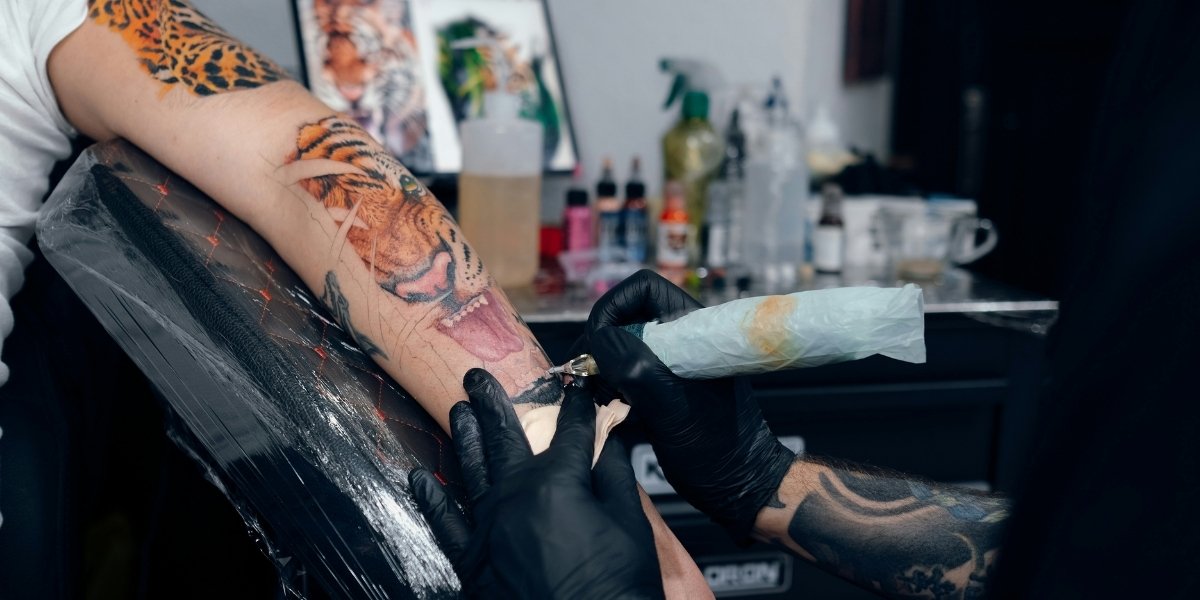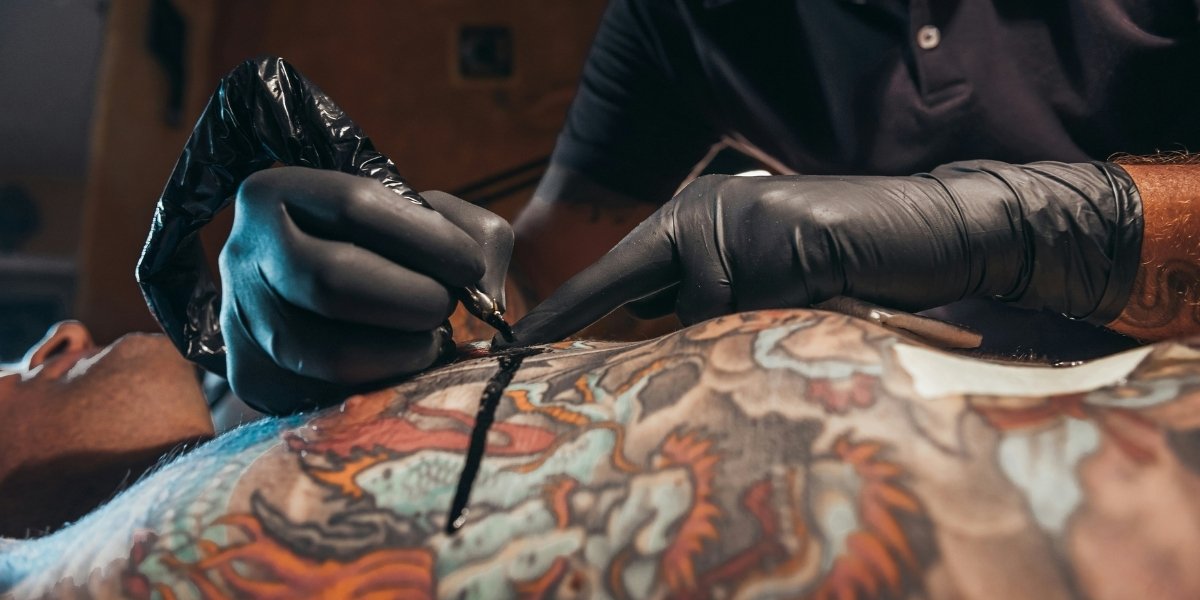The enduring appeal of tattoos, transforming skin into a canvas for personal narratives, extends far beyond mere aesthetic choice. For many, the process and the resulting artwork delve into profound psychological territories, offering both a unique form of expression and, paradoxically, an experience that can be deeply addictive and profoundly healing. This intricate relationship between ink and psyche reveals much about human identity, resilience, and the search for meaning in a tangible form.
Read Also: Quitting Caffeine: How to Break the Habit & Feel Better
Understanding the psychology of tattoos involves exploring the motivations behind getting them, the mental and emotional experience during the process, and the long-term impact on an individual’s self-perception. It speaks to a primal human need for ritual, transformation, and externalizing internal states. The act of marking the body becomes a powerful journey, where pain can be therapeutic and permanence can signify profound change or closure.
What Drives the Psychological Allure of Tattoos?
The psychological allure of tattoos is multifaceted, tapping into deep-seated human desires for individuality, belonging, and self-expression. For many, a tattoo is a powerful statement of identity, a visual declaration of who they are, what they believe in, or what they have experienced. In a world increasingly homogenized, permanent body art offers a unique way to differentiate oneself, to stand out from the crowd, and to reclaim agency over one’s own body. It serves as a personal emblem, visible to the world, yet deeply personal in its meaning.

Beyond individual expression, tattoos can also foster a sense of belonging to a particular group or subculture. From tribal markings of ancient civilizations to modern-day communities built around shared interests, tattoos can act as symbolic identifiers, signifying membership, shared values, or collective experiences. This dual appeal—celebrating the individual while connecting them to a broader community—contributes significantly to the enduring psychological power of these permanent skin adornments.
How Can the Process of Getting Tattoos Be Addictive?
The seemingly paradoxical notion of getting tattoos being “addictive” can be understood through a combination of psychological and physiological factors. The act of being tattooed involves a degree of pain, which triggers the body’s release of endorphins and adrenaline. These natural chemicals produce a euphoric “rush” and a sense of heightened awareness, acting as the body’s own painkillers. For some individuals, this intense physiological response can become pleasurable, leading to a desire to repeat the experience. The anticipation of this physical and emotional sensation contributes to the addictive quality.
Psychologically, the process itself can be a compelling draw. The anticipation, the ritual of the session, and the transformation of the body can provide a profound sense of control and accomplishment. Each new tattoo marks a milestone, a new chapter, or a visible manifestation of inner growth. This sense of progress, combined with the positive reinforcement from admiring the finished artwork, can create a psychological feedback loop that encourages individuals to seek out further tattoos, driving a continuous desire for more ink.
In What Ways Do Tattoos Offer a Healing Experience?
For many, tattoos serve as a profound form of healing, acting as a visible testament to resilience, recovery, or transformation after difficult life experiences. Marking the body with meaningful imagery can be a way to reclaim agency after trauma, turning scars (both literal and metaphorical) into symbols of strength and survival. For instance, individuals who have overcome illness, abuse, or loss often choose tattoos to commemorate their journey, transforming pain into beauty and signaling a new beginning. The act of choosing and enduring the tattoo process can be a ritualistic shedding of the past and an embrace of future self.
Furthermore, tattoos can aid in grief processing and remembrance. Inking the name of a lost loved one, a significant date, or a symbol that represents their memory can provide a tangible way to keep their presence alive and to process complex emotions. This permanent visual reminder serves as a personal shrine, facilitating the ongoing healing process. The ability to externalize profound internal shifts or unexpressed emotions through art on the body provides a unique therapeutic outlet, making tattoos a powerful tool in personal healing journeys.
How Do Tattoos Impact Self-Perception and Body Image?
Tattoos often exert a significant influence on an individual’s self-perception and body image, acting as a tool for personal empowerment and aesthetic enhancement. For some, adding ink to their skin can be a deliberate act of beautification, transforming areas they might have previously felt insecure about into celebrated works of art. This can lead to increased self-confidence and a more positive relationship with their physical form. The act of choosing and designing a tattoo allows individuals to actively sculpt their own appearance, reclaiming their body as a canvas for self-expression rather than a passive object.

Beyond mere aesthetics, tattoos can symbolize personal narratives, milestones, or beliefs, deeply embedding meaning into the skin. This can reinforce an individual’s sense of identity and purpose, reminding them of their journey, their values, or their triumphs. For instance, a tattoo representing overcoming adversity can serve as a constant reminder of inner strength, impacting how a person views their own capabilities. This profound connection between the artwork and personal identity can lead to a stronger sense of self-acceptance and a more integrated body image.
What Is the Societal Evolution of Tattoos and Their Acceptance?
The societal perception and acceptance of tattoos have undergone a remarkable evolution, transitioning from being primarily associated with countercultures or specific professions to becoming widely accepted and even celebrated forms of personal expression. Historically, tattoos carried stigmas, often linked to deviance, rebellion, or specific subcultures. This limited their mainstream appeal and often resulted in discrimination in professional and social settings. However, over the past few decades, there has been a significant shift in public attitudes.
Read Also: The Impact of Digital Platforms on the Art Industry
This transformation is due to various factors, including increased visibility of tattoos on public figures, artists pushing the boundaries of tattoo artistry, and a broader cultural embrace of individuality and self-expression. As more people from diverse backgrounds, including professionals and mainstream individuals, choose to get tattoos, the art form has shed much of its negative connotation. This societal shift reflects a greater understanding and appreciation for personal autonomy and artistic expression on the body, demonstrating a more open and inclusive view of permanent skin adornments.








